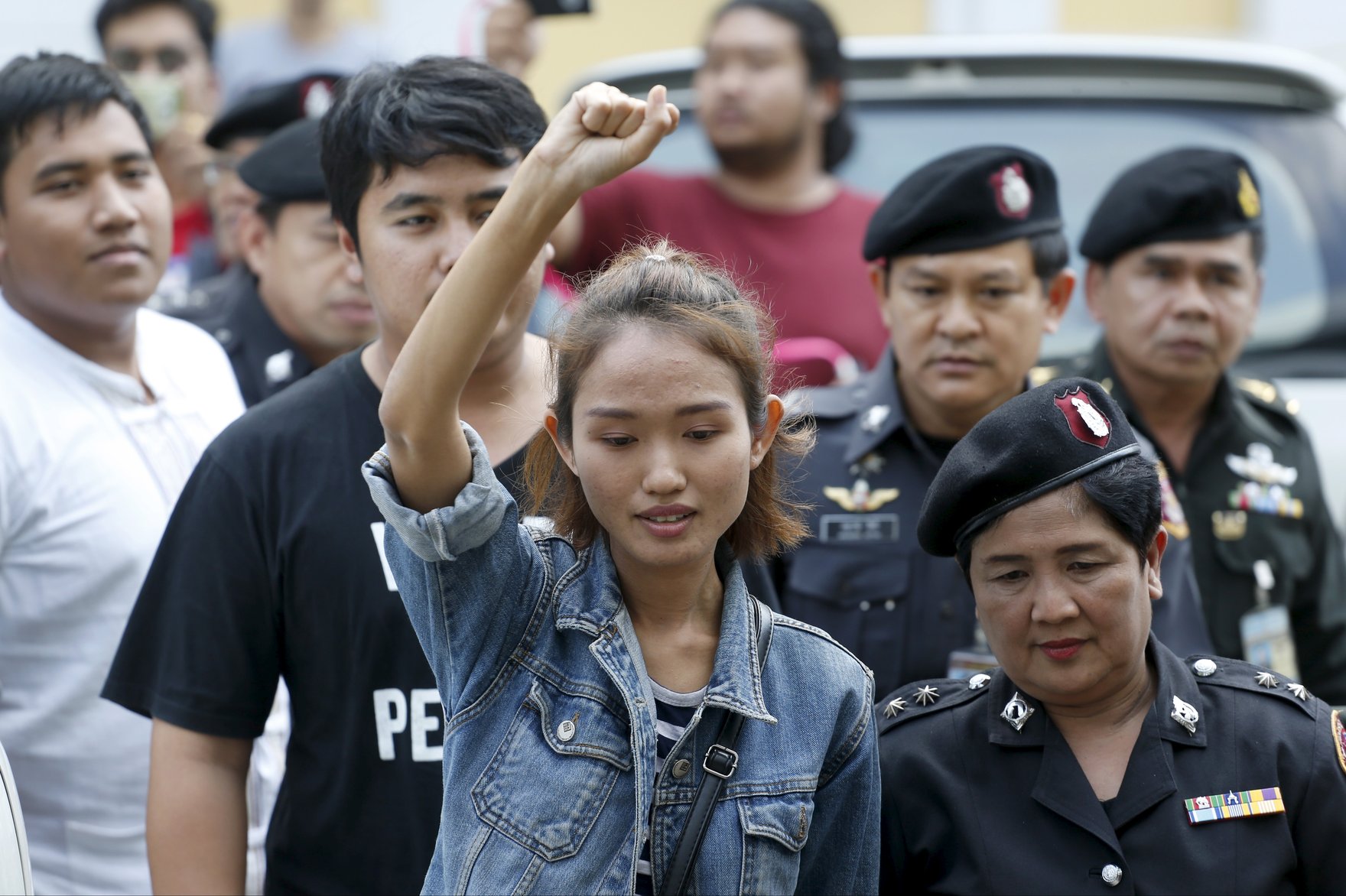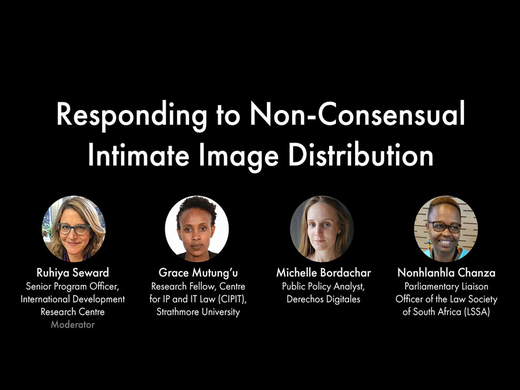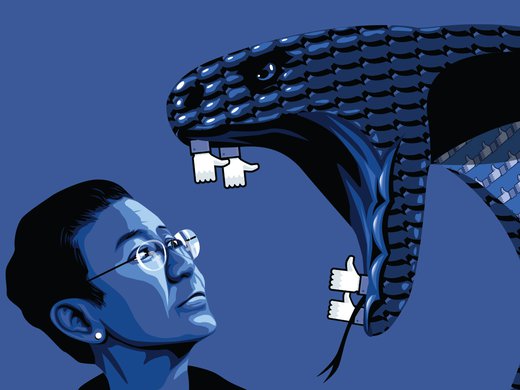Chonticha “Lookkate” Jangrew regularly experiences online abuse, intimidation, harassment and name-calling. As a young political activist and one of the leaders of pro-democracy groups in Thailand, she has been constantly subjected to public humiliation and persecution. Jangrew faces more than 30 charges for her political activism. She stands accused of violating article 112 of the Thai criminal code, which prohibits anyone from defaming members of the royal family, which, if she is convicted, could land her in prison for up to 15 years per count. She has already spent time in jail, been strip-searched, been sexually violated in detention, received multiple physical and death threats, and been the target of various “fake news” attacks. She has been called a drug addict, a ghost, a witch, a prostitute, a traitor — in attacks weaponizing personal characteristics such as her looks in addition to those against her political beliefs. Despite all this, Lookkate — as Jangrew is popularly known in Thailand — is contesting a seat in Thailand’s upcoming national election.
This situation is not exceptional. Lookkate is a modern-day female political leader.
Around the world, violence against female political leaders is rising. The global increase of women’s participation in politics as politicians, activists, community leaders and voters — thanks in part to gender quotas — has also given rise to attacks against women in politics. According to UN Women, violence against women in politics includes any “act, or threat of physical, sexual or psychological violence that prevents women from exercising and realising their political rights and a range of human rights.”
Recent research on women in politics in South Asia has shown that 90 percent of women politicians in India, Nepal and Pakistan felt threats of violence shook their resolve to join politics. The ubiquity of social media worldwide has in effect weaponized digital violence against women in politics, targeting especially those who are outspoken and active on social media. Young women leaders from racial and ethnic minority backgrounds have been found to be most vulnerable to online attacks. The “everyday sexist” comments and hostility against women have also driven many women politicians out of politics in Sweden, Bolivia, Australia and the United Kingdom, for example. The rhetorical violence has at times resulted in physical threats and death, such as the cases of a UK parliamentarian, Jess Phillips, who received more than 600 death and rape threats in one night, and the killing of an environmental activist leader, Gloria Capitan, in the Philippines, for her vocal opposition to a coal mine.
A report soon to be released by the Westminster Foundation for Democracy (WFD), Women’s Political Leadership in ASEAN, is one of the first to investigate the phenomenon of violence against women political leaders in Southeast Asia (the study, which I authored, will be published December 7).
Based on in-depth interviews with 45 female political leaders from across the region, the WFD report finds that young, activist, social media–active and Muslim female leaders are the most vulnerable. These are leaders who rely on platforms such as Facebook, Instagram, TikTok and Twitter to advocate for change.
The most prevalent form of online harassment is misogynistic, sexist and gender-based hate speech that targets women largely on the basis of their appearance. Interestingly, Muslim women political leaders in majority Muslim states such as Indonesia and Malaysia regularly are targeted for how “impious” they appear, with comments about their not wearing their hijab properly or not being married being the most common. Several incidences of online abuse have entailed threats that have led to concerns, as documented in our forthcoming WFD report, about the physical safety of these women.
Female leaders living in fragile democracies also suffer from state violence. As we learned in our research, Malaysian and Thai women leaders experience regular surveillance, intimidation and repression from agents of the state, such as the police and military. Just as in Lookkate’s case, many of the women we interviewed, nearly 50 percent, were subject to abuse, which included being followed while campaigning, having their phones hacked via spyware, being threatened at their homes or workplaces, being trolled online by state-backed disinformation campaigns, and being detained or imprisoned. While some of these tactics are not uniquely used against women leaders, women are often more vulnerable to such attacks.
Today, on the eve of the United Nations’ annual International Day for the Elimination of Violence against Women, we need to ask the pressing question: How can we counter the epidemic of violence against women in politics?
Improving awareness of the abuse of women in politics and supporting more research on the problem would be a good start. Much of the effort in the past two decades by governments, civil society and academic institutions has focused on how to increase women’s political participation — how to get more women elected and how to remove barriers to women’s political leadership.
But far too little attention has been paid to either the obstacles women face once they achieve positions of political leadership or the reasons why they leave politics. Accordingly, one way to jump-start this conversation would be to broaden the notion of “political leadership” to include women leaders at the community level, working in business, not-for-profits, health care, education, academia and journalism, who are not politicians. By doing so, we would gain insights from women who are leading political change from the grassroots and in civil society more broadly. Politics is the tip of the iceberg: the roots of this problem extend far deeper than that. Only by understanding those roots can we begin to truly grapple with violence against women politicians.
This article was cross-posted on Rappler.com. It was produced in partnership with the Centre for the Study of Democratic Institutions and the Centre for Japanese Research at The University of British Columbia.



